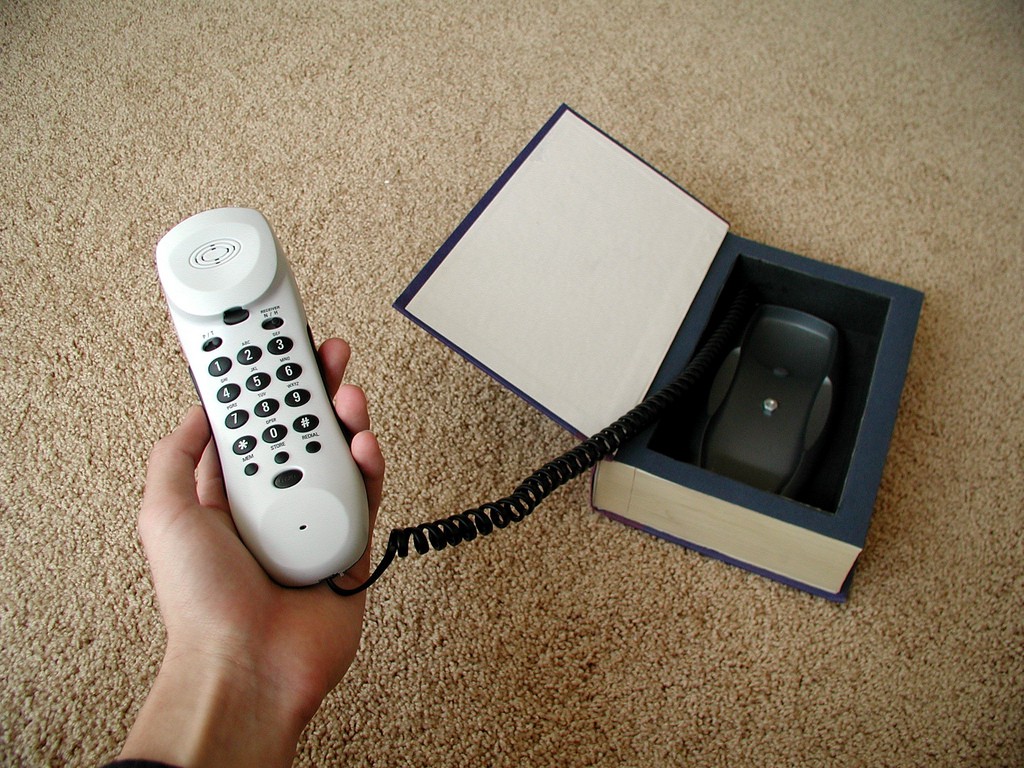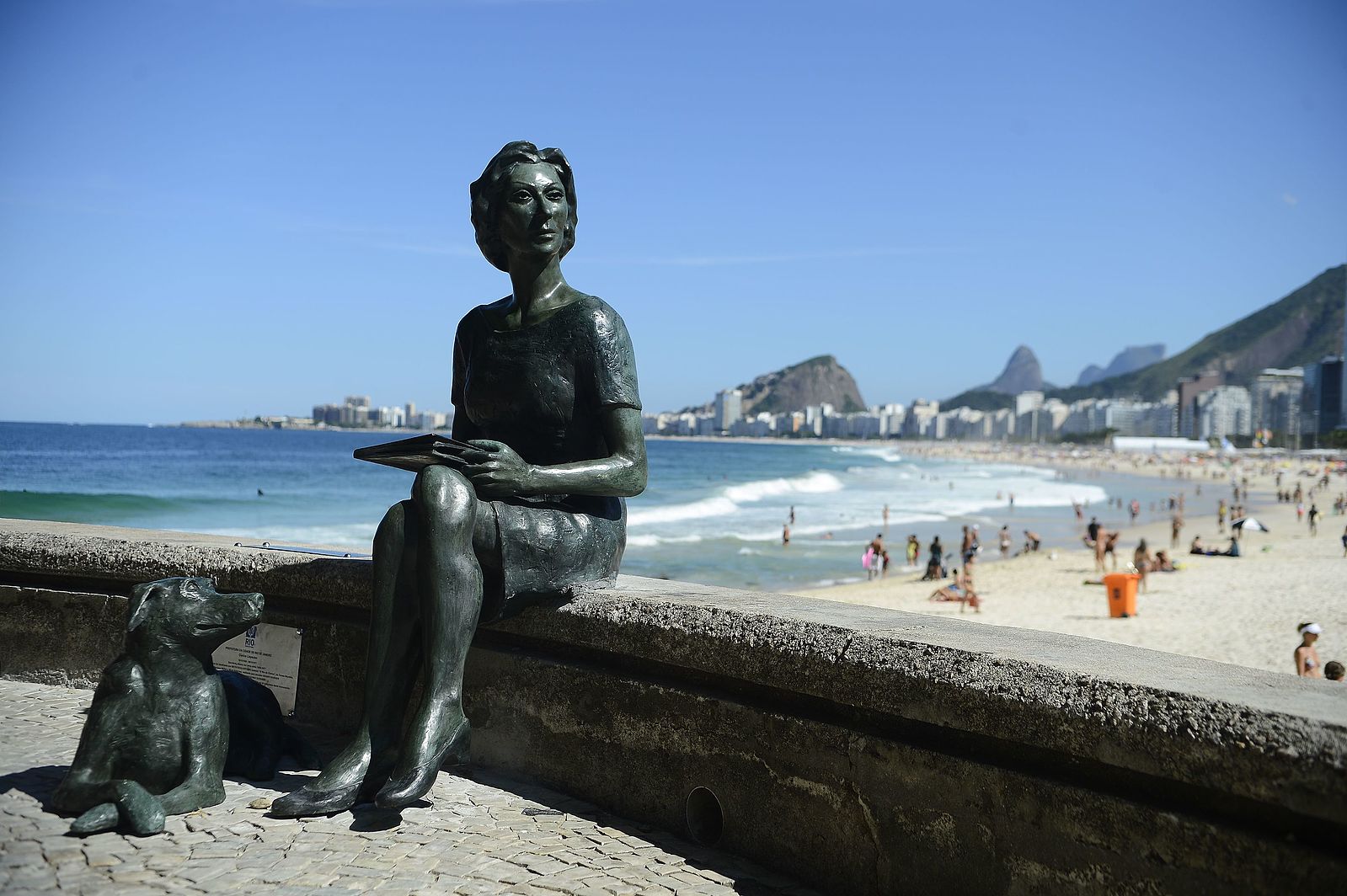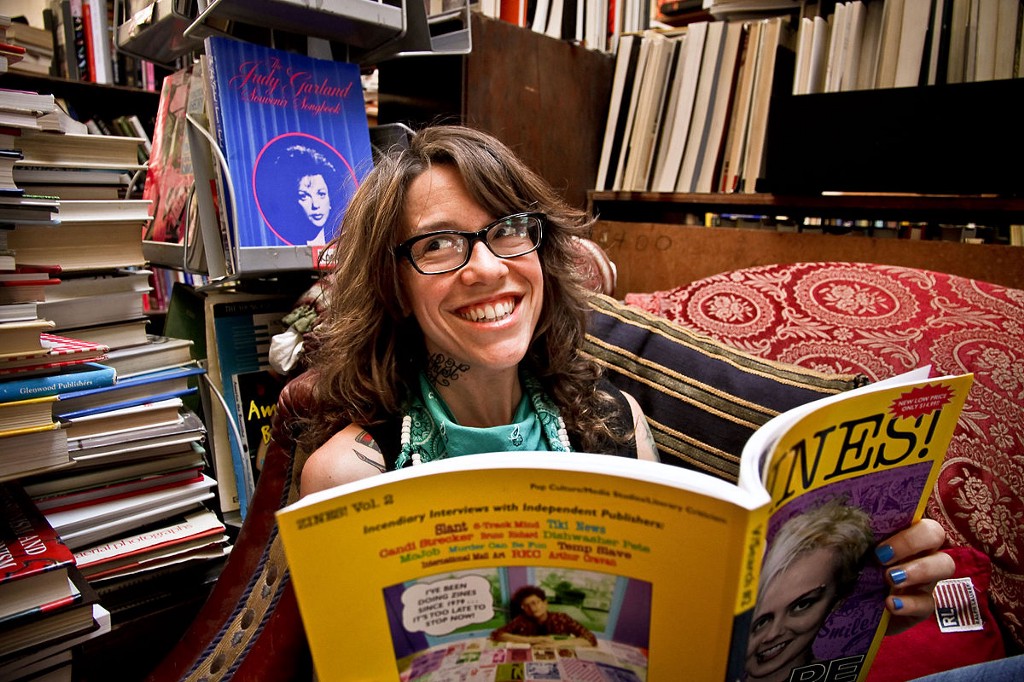essays
Flaubert’s Unfinished Novel Is One Big Middle Finger to Literary Tradition
France’s premiere realist author left behind a work that feels more like “Waiting for Godot”

Each month “Unfinished Business” will examine an unfinished work left behind by one of our greatest authors. What might have been genius, and what might have been better left locked in the drawer? How and why do we read these final words from our favorite writers — and what would they have to say about it? We’ll piece together the rumors and fragments and notes to find the real story.
I recently mentioned to two French friends that I was doing research for a column on Flaubert’s unfinished novel, Bouvard et Pécuchet. They were fans of his work, and so I asked what they thought the book was about.
“Everything,” one replied. “Nothing. Everything is nothing.”
“Very French,” I joked.
“What is it about?” said the other. “It’s…”
He paused, and I thought maybe he was searching for the proper English word for it — le mot juste, as Flaubert would have called it. He looked over his shoulder to be sure the nearby patrons were not watching.
Then he stared at me, raised one hand between us and flipped up his middle finger.
FUCK YOU, he mouthed.
Was this truly the final sentiment of the renowned author of A Sentimental Education and Madame Bovary? A writer whose flawless prose and obsessive attention to detail changed everything about the way fiction was written? Critic James Wood, in his book How Fiction Works, summed up Flaubert’s impact by saying, “Novelists should thank Flaubert the way poets thank spring: it all begins again with him. There really is a time before Flaubert and a time after him.”
Still, even to Flaubert’s ardent admirers, the unfinished Bouvard et Pécuchet presents a challenge. Wood may praise him as the father of “modern realistic fiction,” but if so, what do we make of the fact that his final novel, about a pair of imbeciles who attempt to learn everything about everything in all of human history, is almost anti-realist? It’s more akin to a satire like Candide or the picaresque Don Quixote than it is to Madame Bovary. “Economy and perfectionism in point of words would have been the last concern of the two losers featured here,” Christopher Hitchens remarks in “I’m With Stupide,” his review of the recent translation of Bouvard et Pécuchet by Mark Polizzotti.
If Flaubert is the father of “modern realistic fiction,” what do we make of the fact that his final novel, about a pair of imbeciles who attempt to learn everything about everything in all of human history, is almost anti-realist?
Even at the time of the novel’s publication in 1881, critics did not know quite what to make of it. Émile Faguet cautioned that the book should not be judged severely, as Flaubert surely would have improved on it, had he lived, and that the existing book is the “result of one of his manias.” He summarized the novel as “the history of a Faust who was an idiot.”(Faguet could not see why Flaubert had even chosen to have a pair of protagonists instead of just one.) Cyril Connolly called it the “Baedeker of futility,” while also asserting that the novel was a masterpiece and marking it as a considerable influence on avant-garde writers of the next century like Kafka, Beckett, and Joyce.
Flaubert even questioned his own sanity, early in the process. “One would have to be insane, completely deranged, to take on such a book!” he wrote to a friend.
But take it on he did — for eight years, reading a supposed 1,500 books in research and writing 4,000 manuscript pages, at a legendarily slow pace of five words an hour, until his death by cerebral hemorrhage in 1880.
Flaubert’s niece somehow condensed the voluminous manuscript into roughly 300 pages that were finally published the following year.
Originally titled “The Story of Two Nobodies,” the novel opens with the chance meeting of its protagonists, Bouvard and Pécuchet, two Parisian clerks who form a fast friendship over the fact that they have each written their names inside of their own hats, to prevent them being taken at the office by accident.
They exchange pleasantries about the weather, and wonder if things would be nicer in the countryside, and whether women are better than men, which they agree they often are, but sometimes aren’t. Each enjoys the cavalcade of banality immensely and they soon make a plan to meet again to continue their conversations about politics, fossils, furniture… this and that. It never particularly matters.
They are a classic duo, not unlike Bertie and Jeeves, Vladimir and Estragon, Abbott and Costello, or Jerry Seinfeld and George Costanza—factually knowledgeable, but not particularly bright. Focused on the mundane as if it were the extraordinary. Bourgeois. Downright clownish.
They are a classic duo, not unlike Bertie and Jeeves, Vladimir and Estragon, Abbott and Costello, or Jerry Seinfeld and George Costanza — factually knowledgeable, but not particularly bright.
They are seemingly incapable of original thought, though they talk and talk, attend lectures, and discuss various important discoveries. They marvel at their good fortune in meeting and lament that they must spend time in their offices surrounded by “stupid” people.
Things change when Bouvard inherits a large family fortune, and the two men decide that they will move to the countryside together (where things may or may not be better) and set about trying to grow vegetables. They speak to their provincial neighbors about how this should best be done, and set about on a project to study the science of agronomy in depth. They read dozens of books, hire farmhands, try to raise animals, attempt to make cider — it all ends in disaster. After exhaustive efforts, they end up losing most of their crops, growing cantaloupes that taste terrible, wasting 33,000 francs, and insulting the townspeople at a disastrous dinner party. Having failed completely, and nearly blown themselves up in the kitchen, Pécuchet concludes, “Maybe we just don’t know enough about chemistry!”
And as the next chapter begins, the two set about to learn everything they can about chemistry. They read dozens of books, talk to various knowledgeable experts, attempt all kinds of experiments — and it all results in total failure.
They conclude that what they really need is to better understand anatomy.
The Lost Nabokov Novel That Was Almost Burned—And Maybe Should Have Been
And on it goes, in cycles. Anatomy leads them to medicine, to biology, to geology. Then to archaeology, architecture, history, mnemonics, literature, drama, grammar, aesthetics, politics, love, gymnastics, occultism, theology, philosophy… here they, despairingly, take an interest in suicide, which somehow leads them to Christmas, religion, education, music, urban planning. Each new attempt to learn everything about something is a comedic, disastrous failure.
Critics generally view the book as a satire of Enlightenment thinking, and a skewering of Rousseau’s ideas that humanity progresses through acquiring greater and greater knowledge. At every step, the grand ideas of Bouvard and Pécuchet are dissolved at the hands of harsh reality. They shrug it off and start over. Without possessing any actual intelligence, having all the knowledge in the world turns out to be, over and over again, utterly pointless.
At every step, the grand ideas of Bouvard and Pécuchet are dissolved at the hands of harsh reality. They shrug it off and start over.
“My goal,” Flaubert wrote, “is nothing less than to conduct a review of all modern thinking.”
He described the novel as “a kind of encyclopedia made into a farce… I am contemplating something in which I’ll vent all my anger. Yes, at last I shall rid myself of what is stifling me. I shall vomit back onto my contemporaries the disgust they inspire in me, even if it means ripping my chest open […] It will be big and violent.”
To write this big, violent book, Flaubert read over 1,500 volumes of research in all the areas that his characters explore, often reading many books on a particular topic, only to ultimately yield a few useful details for the novel.
Faguet noted the absurdity of this in his review of the novel: “If one stubbornly insists on reading from the point of view of a man who reads without understanding, in a very short while one achieves the feat of understanding absolutely nothing and being obtuse oneself.”
Stubborn indeed, Flaubert worked on the book for nearly eight years, at times describing it as a masterpiece that would exceed his earlier work, and at other times lamenting that it was killing him. Just two years into the process, he wrote to longtime friend George Sand that the novel was “leading me very quietly, or rather relentlessly, to the abode of the shades. It will be the death of me!”
The last finished chapter of Bouvard and Pécuchet leaves the main characters at a key moment. Having run into conflict with their provincial neighbors, they decide that to set things right they must deliver a lecture about the “usefulness” of their project. Several pages of notes follow on what might have been two more chapters, describing what might have been the climax and conclusion of the novel.
The lecture was to backfire and set the townspeople in an uproar, at which point Bouvard and Pécuchet would return to their farmhouse to discuss the future of humanity.
Pécuchet takes a pessimistic view. “Modern man has been diminished and turned into a machine.” Peace is impossible, barbarism is inevitable. Soon there will be no more ideals, religion, or morality. “America will conquer the earth [.…] Widespread boorishness. Everywhere you look will be carousing laborers. End of the world through the cessation of heat.”
Bouvard takes the optimistic view. “Modern man is progressing.” Europe and Asia will soon regenerate one another and their populations will “meld together.” The future will see incredible scientific advances and inventions. “Balloon. Underwater boats with windows […] we will watch fish and landscapes parading by at the bottom of the ocean. Trained animals. Everything cultivated.” After magnetic energy is harnessed, phosphorescent substances will soon light people’s homes and radiate the streets. “Disappearance of evil through the disappearance of need. Philosophy will be religion. Communion of all peoples, public celebrations. We will go to the stars — and when the earth is used up, humanity will spread to other planets.”
Truman Capote’s Lost Novel Would Have Aired All His Dirtiest Laundry
They would then be interrupted by the police and the townspeople, trying to have the men arrested for their inflammatory and blasphemous lecture.
After a debate over whether or not they are insane and need to be committed, the two would leave town at last and, at a special copy-desk built for two, begin the work of assembling a Dictionary of Accepted Ideas in which they would share at last all the knowledge they had come to in the course of their studies.
Flaubert wrote at least part of this Dictionary, which is essentially a collection of banalities:
WINTER: Always exceptional (v. summer) Better for health than the other seasons.
EXCEPTION: Say that they prove the rule. Don’t venture to explain how.
IMBECILES: Those who don’t think like you.
FUGUE: We don’t know quite what they are, but the fact is that they’re very difficult, and very boring.
POETRY: Is utterly useless. Out of fashion.
OPTIMIST: Synonym for imbecile.
CELEBRITY: Concern yourself with the slightest detail of celebrities’ private lives, then denigrate them…
NOVELS: Pervert the masses. Are less immoral in serial form than in volumes. Only historical novels can be tolerated, because at least they teach history[…]
SUMMER: Always exceptional (v. winter).
Etc. etc. etc.
Was my friend correct? Did Flaubert read 1,500 books and write 4,000 pages about two clownish characters just to make the point that one can know everything there is to know about everything and still fail? Did he spend eight years writing to observe that self-improvement is a waste of time? That all the experts on all the knowledge in all of history do little more than simply contradict one another until nothing means anything?
In today’s age of information overload, it is hard not to consider this as Flaubert’s prophetic observance. With all the knowledge democratized by internet that resides at our fingertips, are we making progress? Has too much knowledge even made us somehow stupider?
In today’s age of information overload, it is hard not to consider this as Flaubert’s prophetic observance. Has too much knowledge even made us somehow stupider?
Christopher Hitchens writes of Bouvard and Pécuchet, “This novel was plainly intended to show its author’s deep contempt, however comedically expressed, for all grand schemes, most especially the Rousseauean ones, to improve the human lot. Such schemes founder because the human material is simply too base to be transmuted.”
Perhaps this was what Flaubert labored so hard to demonstrate in this middle finger of a novel—which did, eventually kill him.
But like Bouvard’s thoughts on our future, there is a more optimistic view. A French writer of the next generation, Albert Camus, would argue that there can be great joy in futility. “The struggle itself toward the heights is enough to fill a man’s heart. One must imagine Sisyphus happy.”
Jorge Luis Borges, in his essay “A Defense of Bouvard and Pécuchet” dismisses nihilistic readings of the novel. “To infer the vanity of all religions, sciences, and arts from the mishaps of these two buffoons is nothing but an insolent sophistry or a crude fallacy. The failures of Pécuchet do not entail a failure by Newton.”
In his lecture on Multiplicity in Six Memos for the Next Millennium, Italo Calvino contends that Bouvard and Pécuchet is “the most encyclopedic novel ever written […] even if the pathetic and exhilarating voyage through the seas of universal knowledge taken by these two Don Quixotes of nineteenth-century scientism turns out to be a series of shipwrecks.”
Calvino contends that Bouvard and Pécuchet is “the most encyclopedic novel ever written.”
He believes that the novel features two “imbeciles” not to stand in for all of humanity, but because only they, in their guilelessness, can show humanity a truth it cannot see plainly.
And we should not, he says, attempt to read the novel as a realist fiction. Borges declares that Flaubert as the author who “forged the realist novel was also the first to shatter it.” The book is plainly not realistic — on top of the seemingly endless funds that Bouvard inherits to kick off their research, there is also the issue of the passage of time. Some 40 years would go by in just the first seven chapters.
In the ending, which Flaubert outlined but never finished, the protagonists would not die, but go on copying their work into eternity — side by side, at a desk specially designed for two. It is a beautiful image, and one which I wish dearly that Flaubert had lived to set into perfect, economical prose.
In the ending, which Flaubert outlined but never finished, the protagonists would not die, but go on copying their work into eternity — side by side, at a desk specially designed for two.
Of all the things that Bouvard and Pécuchet study, and try, and fail to understand — they never solve the very first mystery they are faced with on the day they met. Why do two people become friends at all? What is the root of our affection for one another? Why do we persist in our daily efforts to discover new knowledge, when there is already too much to ever know?
“We still know almost nothing,” Flaubert wrote, “and we would wish to divine the final word that will never be revealed to us. The frenzy for reaching a conclusion is the most sterile and disastrous of manias.”
There is a sincere moment late in the novel, where Bouvard comes to something of an awareness of the futility of their endless task. While stargazing, he says to his dear friend, “Science is based on data supplied by a small corpus of knowledge. Perhaps it doesn’t apply to all the rest that we don’t know about, which is much more vast, and which we can never understand.”
He says this, and then, they go on.
Correction, May 8: The original version of this essay misattributed an Italo Calvino quote to Jorge Luis Borges.









